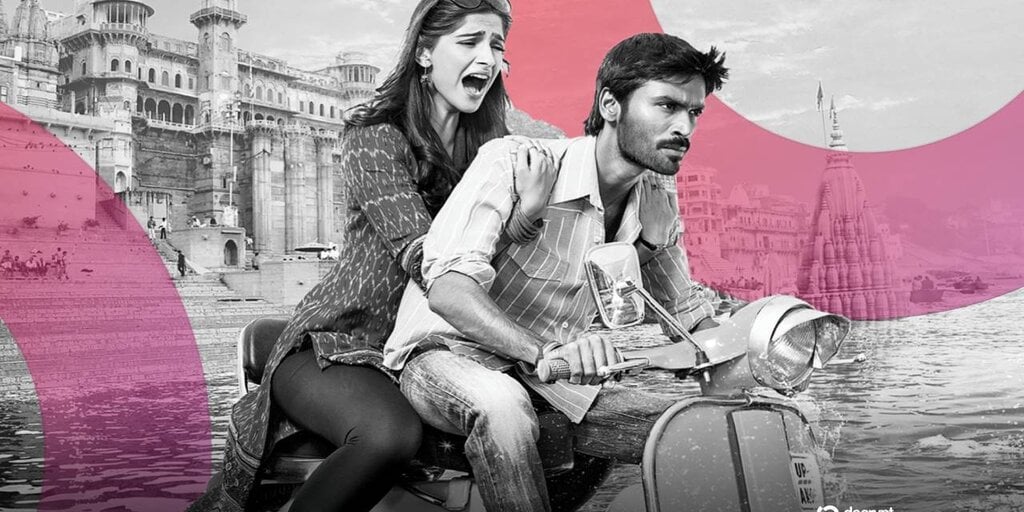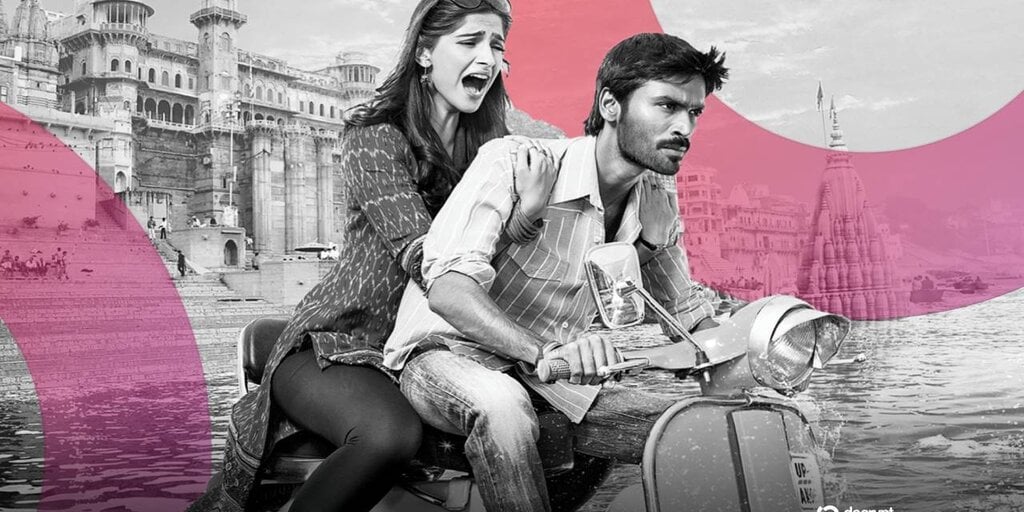
In brief
- Eros International will release an AI-modified version of its 2013 film Raanjhanaa in Tamil with a new ending, claiming it’s more culturally sensitive for Tamil audiences.
- Original director Aanand L. Rai strongly opposes the release, arguing it violates artistic consent and sets a troubling precedent for AI use in filmmaking without creator approval.
- Critics dismiss the project as a publicity stunt, citing current AI video generation limitations, while Eros plans to review its 4,000-film library for similar AI modifications.
Indian production company Eros International is releasing a version of its 2013 film Raanjhanaa with an AI-produced ending—without the original director’s involvement or consent.
Scheduled for release on August 1, the new version of Raanjhanaa will be in Tamil instead of Hindi, and will include an ending which Eros states is more sensitive to the Tamil audience.
Speaking to Decrypt, Eros CEO Pradeep Dwivedi stressed that only a small portion of the film has been modified, and that the original version will remain available.
“The AI-assisted changes in Ambikapathy [the film’s title in Tamil] represent a very small portion,” he said, “well under 5% of the film’s total runtime, limited to the final act of the narrative.”
The rerelease of the film with an AI-generated ending has attracted strong opposition from original director Aanand L. Rai, who has suggested in an interview that it “sets a deeply troubling precedent” for the motion picture industry.
Rai’s production company Colour Yellow is currently in the middle of a dispute with Eros over the rerelease, with the director arguing that, while Eros may hold exclusive copyright over Raanjhanaa, the new version “disregards the fundamental principles of creative intent and artistic consent.”
The release taps into ongoing controversies surrounding the role of AI in the film industry, one stretching at least as far back as the 2023 SAG-AFTRA strike that immobilized Hollywood for several months.
According to Dwivedi, Eros did not use AI to generate scenes independently or without oversight.
“Instead, we used it as a creative tool under human supervision to generate an alternate emotional resolution that aligns with the cultural tone and audience sensibilities of the Tamil market as an alternate version,” he told Decrypt.
Dwivedi did not provide specific details on how AI was used to modify existing scenes, although he did state that “no part of the original story was erased or replaced,” and that the original film is still available for viewing.
Going forward, Eros plans to continue using AI, with Dwivedi sharing that it’s “reviewing” the company’s library of more than 4,000 properties and will consider opportunities on a case-by-case basis, depending on legal rights and cultural and creative relevance.
“We see AI as one of many tools to enhance, localize, or reimagine existing content, but always with transparency, restraint, and audience respect,” he said. “This is not about replacing the past—it’s about presenting alternate lenses where appropriate.”
Dwivedi describes this approach as a “curated strategy,” one based around “responsible innovation.” But director Aanand L. Rai has argued that Eros International’s plans undermine the concept of art as “a reflection of the vision and labour” of artists.
“The use of AI to retrospectively manipulate narrative, tone, or meaning without the director’s involvement is not only absurd, it is a direct threat to the cultural and creative fabric we work to uphold,” he told Variety. “If unchecked, this sets a precedent for a future where myopic, tech-aided opportunism can override the human voice and the very idea of artistic consent.”
Similar sentiments are shared by artists and creators in other geographical areas, including the UK-based arts and entertainment trade union Equity, which tells Decrypt that legislation should be introduced to protect creatives from such “unethical applications” of AI.
“Artificial intelligence should never be used to alter or synthesise artistic output without the consent of the creatives involved—whether they be actors, directors, dancers, writers, and so on—and that these creatives should be fairly remunerated for such usage,” a union spokesperson told Decrypt.
Not only do some observers from the arts take issue with Eros International’s actions, but others suspect that the company may be more focused on generating publicity than genuinely innovating.
This is the view of David Gerard of pivot-to-ai.com, who tells Decrypt that he believes Eros’ actions are an “obvious” stunt.
“AI video generation from scratch is simply not up to any professional standard,” he said. “It can’t follow a script or follow direction.”
Elaborating on these criticisms, Gerard notes that he and collaborator Amy Castor conducted a long experiment with Google’s Veo 3 at Pivot to AI, and that the “utterly bizarre” results can be viewed on YouTube.
“We demonstrated thoroughly that Veo absolutely cannot accept direction, it can’t even follow a script or get the right characters saying lines,” he explained, before adding that no other video generator does much better, with hallucinations and errors “intrinsic” to how these models work.
“Every impressive demo that someone says came out of a video generator is at best generated with a vast amount of failed footage and often requires post-production Photoshop work on almost every frame,” he added.
Because Eros hasn’t been particularly forthcoming with precise details of what it has done with AI, and what the AI-created scene consists in, Gerard reiterates that its rerelease of Raanjhanaa “reeks” of a publicity stunt.
This, however, is disputed by Eros International and CEO Dwivedi, who has responded to earlier claims (from Rai) that the rerelease is meant to distract attention away from ongoing legal and regulatory disputes with Colour Yellow.
“We reject any suggestion that this creative project was conceived as a distraction from regulatory matters,” said Dwivedi, speaking to Variety. “The reinterpretation of ‘Raanjhanaa’ had been under development long before recent legal proceedings or regulatory commentary.”
Generally Intelligent Newsletter
A weekly AI journey narrated by Gen, a generative AI model.




